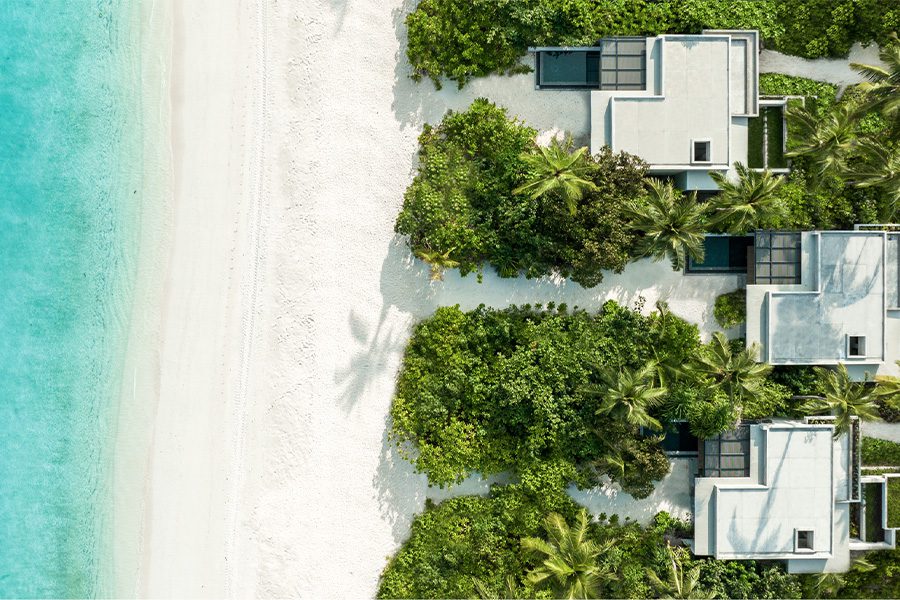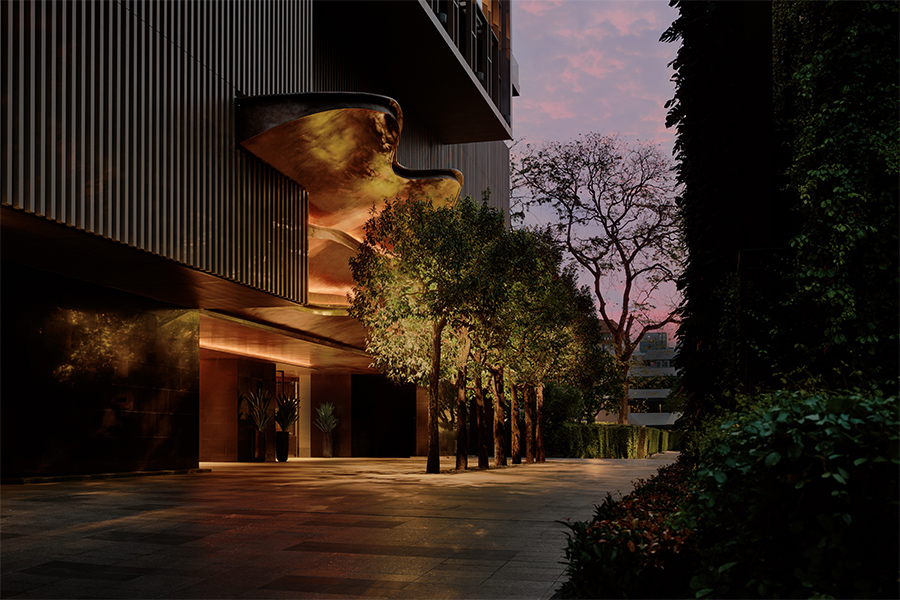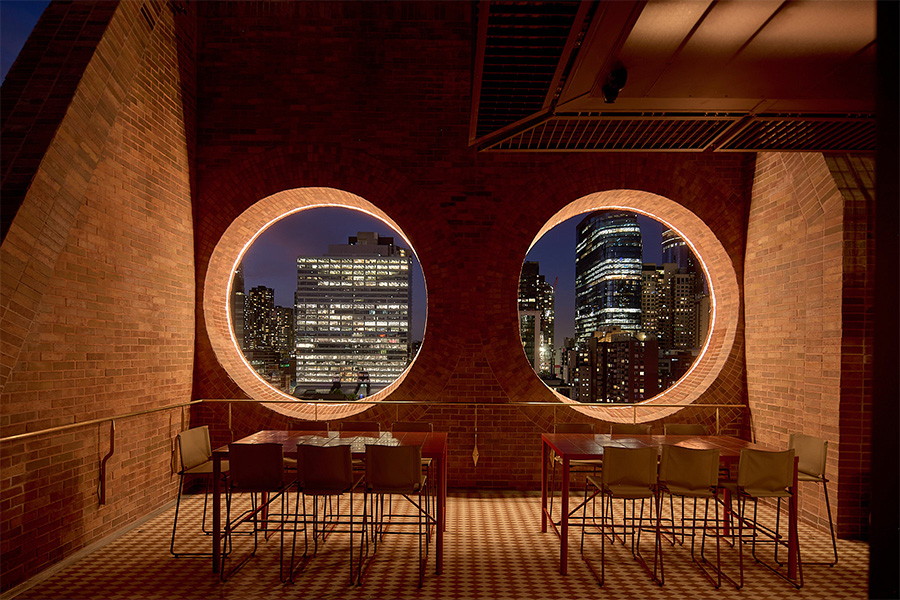Alila Kothaifaru is one of the newest destinations in the Maldives’ scenic archipelago. Accessible via a 45-minute seaplane ride from Malé, the country’s capital, the resort is nestled among the lush Raa Atoll, surrounded by a coral reef, turquoise waters, and verdant forests. The nearly 30-acre property comprises 80 villas (44 beachfront and 36 overwater) designed by Singapore-based firm Studiogoto.
According to the firm’s founding partner and architect Chioh-Hui Goh, “harmony and minimalism” guided the architecture and interiors, with a focus on conserving as much of the natural landscape as possible. This approach gave way to the use of low-rise pavilions and villas constructed as a series of layers to integrate the architecture into the landscape.
“The concept of the layering terraces for the main architectural design is interpreted via horizontal lines and geometry [seen throughout the resort].” Goh says. “It was enriching to be able to carry the concept [through] from the biggest to the smallest detail.”

The open-air Mirus Bar overlooks the Indian Ocean
To guests, the resort reveals itself little by little. Nearly invisible from the approach, each villa has complete privacy. For instance, when guests walk to the beach villas, they wind along a forest path to heighten the sense of seclusion.
Inside the oceanfront villas, arranged in a spiral for unobstructed views of the sea, light timber and sand tones combine with a restrained use of black accents for a calming yet contemporary palette. Each villa boasts glass doors that bring the outside in, an open concept bedroom and living area, and a private infinity pool and sun deck for relaxation.
“Alila achieves the ultimate understated sophistication by reducing each environment down to what is essential,” Goh says. “Stripping away the unnecessary ornaments and removing clutter and distraction creates spaces for guests to think, to breathe, and to restore.”

Private pools and sun decks accent each of the 36 overwater villas
Consider the minimalist Spa Alila, situated within the leafy treetop canopy of the islands. Housing four suites, each feature floor-to-ceiling windows, unveiling views of the lush vegetation.
Elegant simplicity also extends to the F&B concepts. Seasalt, a Mediterranean restaurant with Middle Eastern influences, and Mirus Bar, an oceanfront, open-air lounge, revolve around the use of local sea salt, harvested from the waters surrounding the island. Meanwhile, at the Japanese-focused Umami, offerings include fresh-caught fish and organic vegetables, while Pibati Café (named after the Sanskrit word for ‘drink, absorb, imbibe’) has juices and wellness drinks on the menu.

Bleached Kapoor wood windows nod to the tones of Maldivian sand at Seasalt restaurant
The use of local ingredients is only one facet of Alila’s overall approach to sustainability. To achieve EarthCheck certification, Alila implemented sustainable practices from day one, including using eco-friendly alternatives to single-use plastic, converting paper and vegetable waste to fertilizer, and using a sustainable water consumption process.
“Each Alila hotel is designed in harmony with the environment, preserving the extraordinary natural beauty of the destination,” says Goh. “At once ancient and modern, the property transcends time, seamlessly blending with the environment to balance the outside world with the inside.”

The minimalist library provides a communal space for guests to rest or read while taking in the scenery
This article originally appeared in HD’s April 2023 issue.



